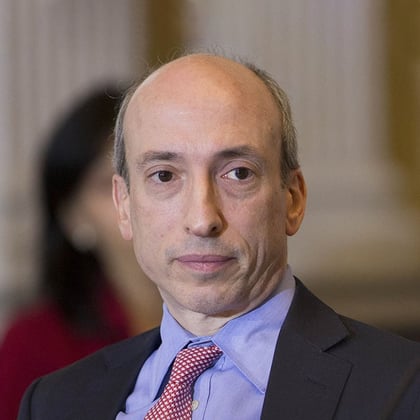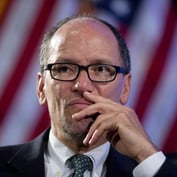What You Need to Know
- Gensler has ordered agency staff to review current agency rules governing equity market trading.
- Gensler wants recommendations on best execution, Regulation NMS, payment for order flow and the National Best bid and offer (NBBO).
- He's concerned about the half of trades that take place off the national exchanges in dark pools and through wholesalers.
Securities and Exchange Chairman Gary Gensler has ordered agency staff to review current agency rules governing equity market trading.
In prepared remarks for the Global Exchange and Fintech Conference, Gensler said he asked staff for recommendations on best execution, Regulation NMS (National Market System), payment for order flow on and off exchange, minimum pricing increments and the National Best Bid and Offer (NBBO).
“We are often relying on rules written in an earlier period,” Gensler said. “Rules mostly adopted 16 years ago do not fully reflect today’s technology … It’s appropriate to look at ways to freshen up the SEC’s rules to ensure that our equity markets reflect our mission: to maintain fair, orderly, and efficient markets, while ensuring we protect investors and facilitate capital formation.”
Gensler noted that only a little more than half the trading volume occurred on major public markets like the Nasdaq and the New York Stock Exchange in January and most of the remaining trades (38%) were executed by off-exchange wholesalers, primarily just seven of them. Moreover, one firm, Citadel Securities, said it executed nearly half of those off-exchange trades, according to a footnote in Gensler’s remarks.
Such market concentration “can increase potential system-wide risk should any single incumbent with significant size or market share fail,” said Gensler. Nine percent of January trades were executed on alternative trading systems known as dark pools.









 June 09, 2021 at 04:20 PM
June 09, 2021 at 04:20 PM











